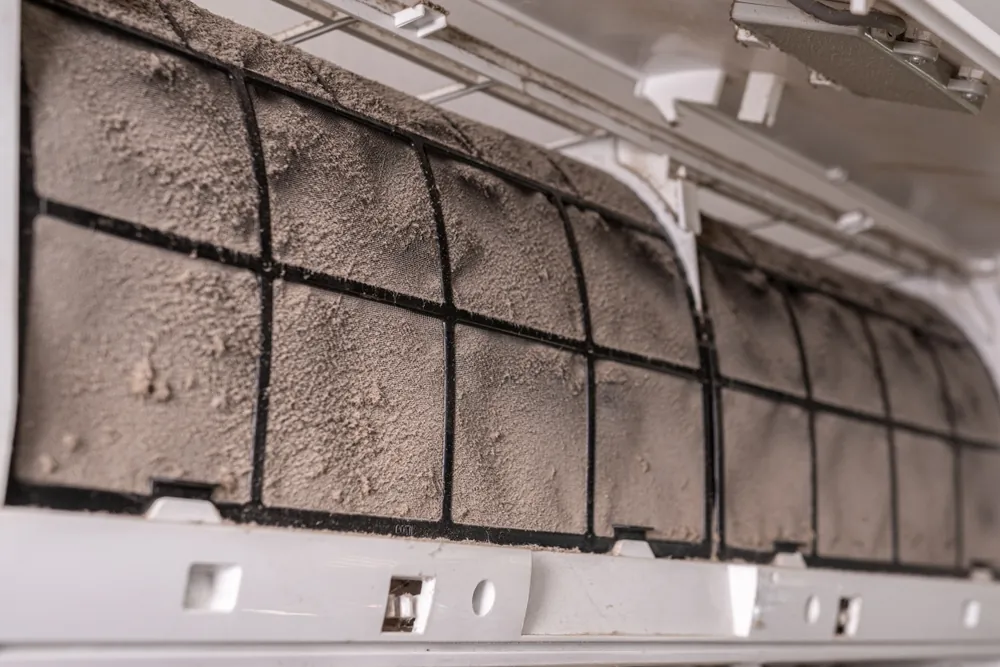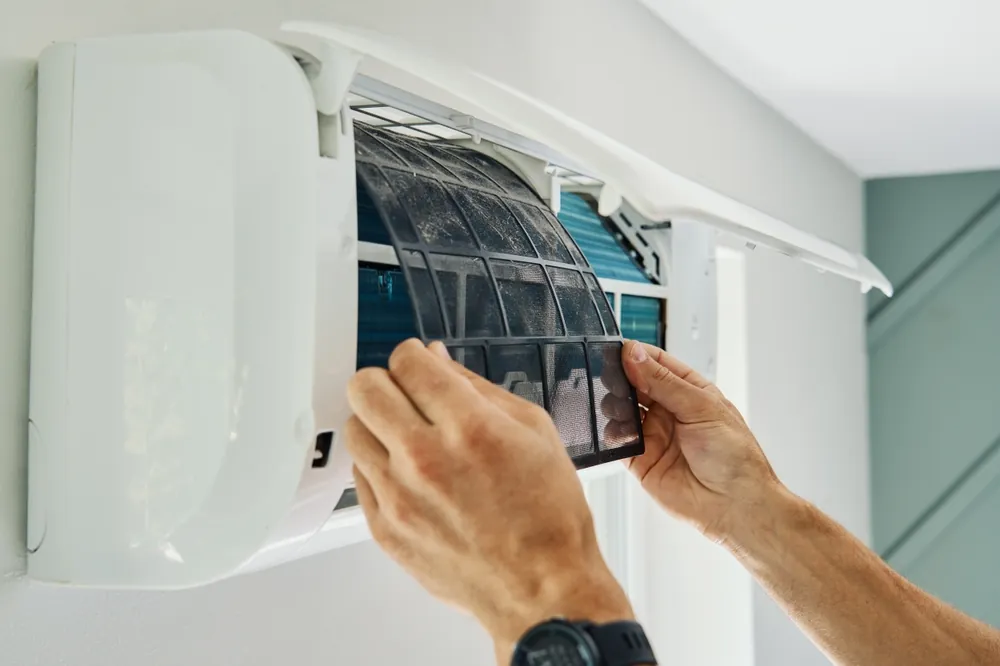Running your air conditioner smoothly throughout the year is essential, especially on the Central Coast, where summer heat can be intense and humidity levels high. At All Coast Air Conditioning, we understand that homeowners want to take care of their systems but also need guidance on when to tackle simple upkeep and when to call in the professionals. Knowing the difference between routine maintenance and situations that require air conditioning repair in Central Coast not only helps avoid costly breakdowns but also ensures your home stays comfortable through every season. This guide will walk you through the tasks you can safely manage yourself and the signs that mean it’s time to bring in a trained technician.

Basic Air Conditioning Maintenance Tasks for Homeowners
Preventive care is the cornerstone of keeping your air conditioner in top shape. Many common issues can be avoided with routine maintenance that homeowners can safely manage:
Cleaning and Replacing Filters
- Frequency: Every 1–3 months depending on usage, household size, and pets.
- Why it matters: Dirty filters restrict airflow, reduce cooling efficiency, and can lead to frozen coils. They also trap dust, pollen, and allergens, which is particularly important on the Central Coast where pollen levels can spike in spring.
- Tip: Some filters are washable—rinse them gently with lukewarm water and let them dry completely before reinstalling. Disposable filters should be replaced rather than cleaned.
Clearing Debris Around Outdoor Units
- Frequency: Monthly inspection recommended.
- What to do: Remove leaves, dirt, and small branches from around the condenser unit. Trim nearby plants to maintain at least 30cm clearance for proper airflow.
- Why it matters: Blocked airflow reduces efficiency and can cause the compressor to overheat, potentially leading to costly repairs.
Checking Thermostat Settings
- Ensure the thermostat is set correctly for your comfort and energy efficiency.
- Energy tip: On hot days, setting your thermostat to 24–25°C is comfortable and helps reduce electricity costs.
- Modern systems: If you have a smart thermostat, check that schedules, zones, and temperature offsets are correctly configured.
Inspecting for Visible Damage
- Check for loose wires, bent fins, or signs of wear on fan blades.
- While minor cosmetic issues can wait, anything that looks unusual or could affect performance should be flagged for a professional.
Monitoring Water Drainage
- Check that the condensate drain line isn’t blocked by algae, dirt, or debris.
- A blocked line can cause water to back up into your home, leading to mould or water damage.
Regular maintenance doesn’t just prevent problems—it keeps your air conditioner running efficiently, lowers electricity costs, and prolongs the system’s life.
Warning Signs You Need a Professional Repair
Sometimes, a problem isn’t something you can safely fix yourself. These warning signs indicate it’s time to call in a licenced technician:
Unusual noises
- Grinding, banging, squealing, or hissing sounds can indicate loose parts, worn bearings, or refrigerant leaks.
- Ignoring these noises can lead to severe damage to the compressor or motor.
Poor cooling or inconsistent airflow
- Some rooms stay warm while others cool properly.
- This may signal blocked ducts, low refrigerant, or a failing compressor.
Frequent cycling (turning on and off)
- Rapid on/off cycles often point to thermostat, electrical, or refrigerant issues.
- Continuous cycling increases wear and electricity costs.
Water leaks inside the home
- Could indicate a blocked condensate line, frozen evaporator coil, or improper installation.
- Water damage and mould growth are common consequences.
Foul or unusual smells
- Musty odours may indicate mould in ductwork.
- Burning smells can be a serious electrical hazard.
Increased energy bills without usage changes
- Sudden spikes in electricity bills may mean your unit is struggling due to hidden mechanical or refrigerant problems.
If you notice any of these warning signs, contact All Coast Air Conditioning immediately. Early detection prevents minor issues from turning into expensive repairs.

Common Repairs: What’s Safe to Do Yourself?
While some tasks require a professional, there are small repairs that homeowners can safely perform:
Resetting circuit breakers
- If your unit stops unexpectedly, check your home’s circuit breaker or switchboard. Resetting a tripped breaker may restore power safely.
Cleaning coils lightly
- Use a gentle spray of water to rinse outdoor condenser coils. Avoid using high-pressure hoses or harsh chemicals.
- Dirty coils can reduce efficiency by up to 30%, so light cleaning is worth the effort.
Replacing batteries in wireless thermostats
- Simple, inexpensive, and keeps your system responsive.
Tightening visible screws and panels
- Vibrations from the unit can loosen panels over time, causing noise or airflow problems.
Important: Anything involving refrigerant, major electrical wiring, or internal component replacement is unsafe for DIY. Refrigerants are highly regulated in Australia, and mishandling can be hazardous and illegal.
How Technicians Diagnose More Complex Problems
Licenced air conditioning professionals have the training, tools, and experience to identify and fix complex issues that are unsafe for homeowners to tackle:
Refrigerant leaks
- Technicians use specialised tools like electronic leak detectors and pressure gauges.
- Correct refrigerant handling ensures compliance with Australian refrigerant regulations and environmental safety.
Electrical diagnostics
- Advanced testing can pinpoint faulty capacitors, relays, or motors.
- Prevents electrical hazards and costly trial-and-error repairs.
Compressor and fan motor issues
- Technicians safely inspect and replace these components, which are critical for cooling performance.
System efficiency checks
- Measuring airflow, temperature differentials, and energy use helps optimise performance.
- Technicians can also recommend upgrades or system modifications to improve efficiency in older homes.
By involving a professional early, homeowners save money in the long run and reduce the risk of serious system damage or electrical hazards.
Service Plans, Emergency Repairs, and Peace of Mind
One of the best ways to avoid unexpected breakdowns is through a regular service plan:
Scheduled maintenance
- Annual or biannual inspections include coil cleaning, refrigerant checks, electrical tests, and overall system assessment.
Priority call-outs
- Many service plans offer emergency support, meaning if your unit fails during a Central Coast heatwave, a technician will be on-site quickly.
Extended lifespan and cost savings
- Regular servicing reduces wear and tear, delays costly component replacements, and improves efficiency, lowering energy bills.
Energy efficiency
- Central Coast electricity costs are rising. A well-maintained system uses less power, giving homeowners both comfort and financial relief.
Peace of mind
- Knowing that a professional is monitoring and maintaining your system eliminates stress, especially during summer months when air conditioning is essential for health and comfort.
At All Coast Air Conditioning, our service plans are designed for Central Coast homes and businesses, ensuring your air conditioner runs reliably, safely, and efficiently year-round. By understanding when to DIY and when to call the experts, homeowners can enjoy cool, comfortable living without the headache of unexpected breakdowns.
We Run Our Business Like a Family
When You Need Help
Get your home the Air Conditioning work it needs from our team at All Coast Air Conditioning. We’re always ready to help.



